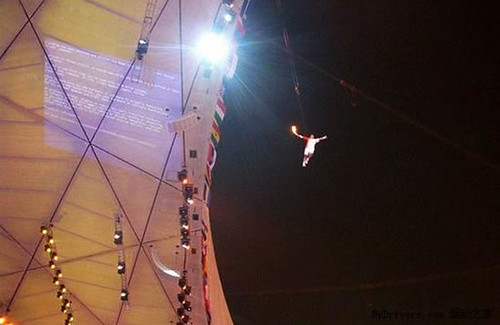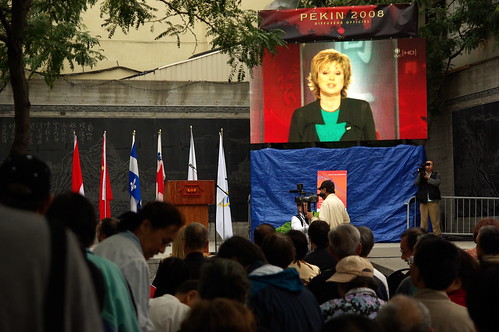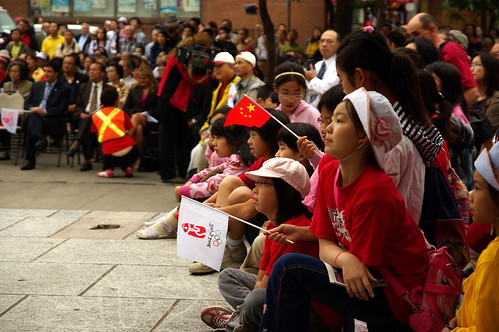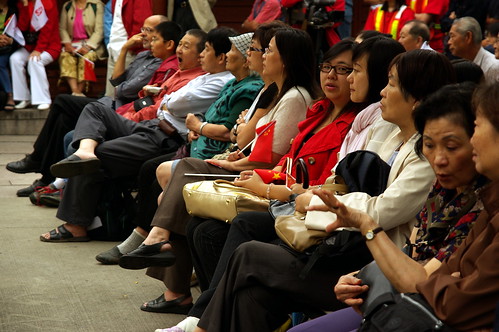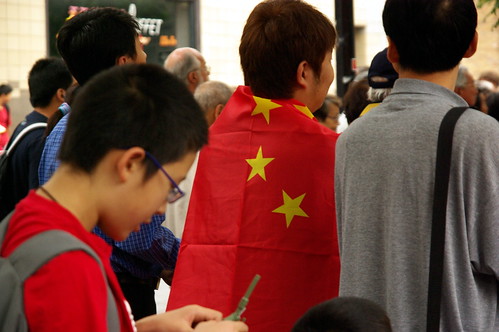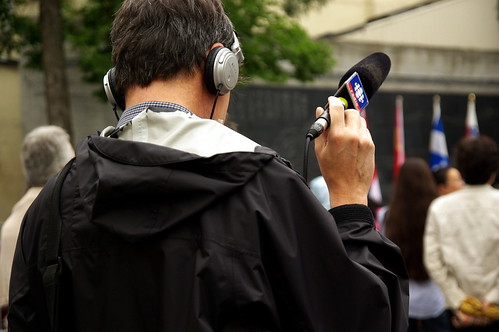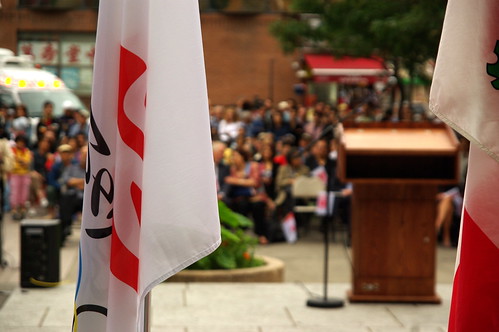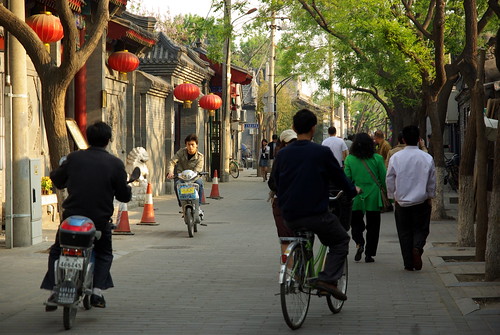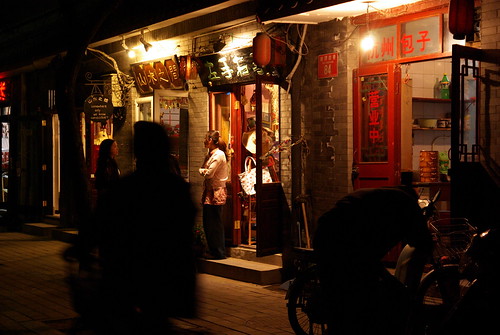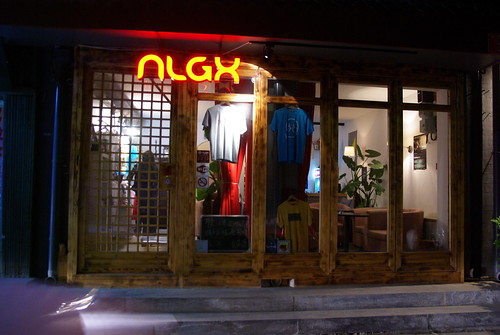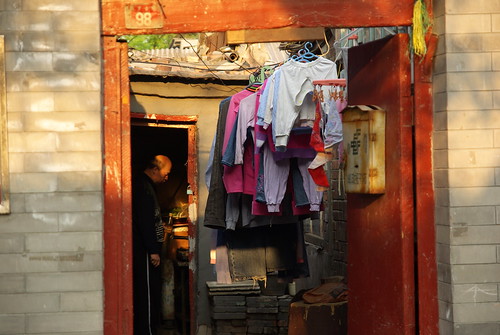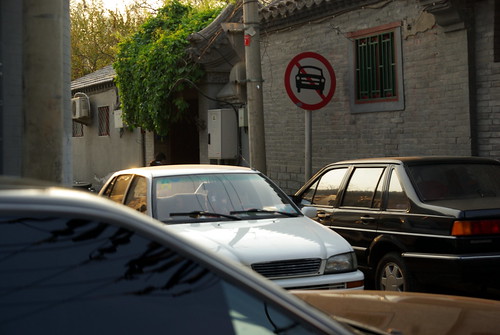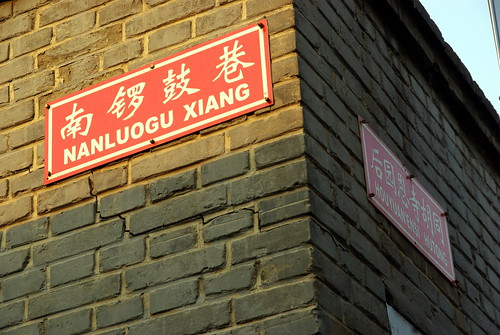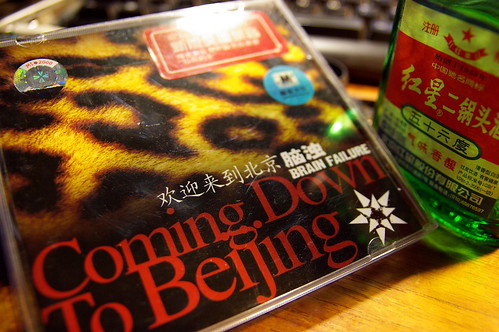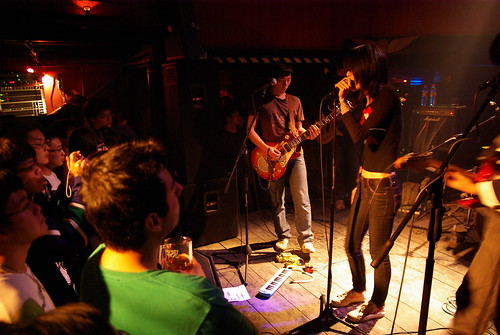
Beijing band Guai Li at D-22
Ceci est une traduction d’un texte que j’ai écrit pour le blogue de Bande à part, publié le 8 août 2008.
—
Last April, I was in East Asia to attend a rock music festival in Kenting, Taiwan, and then made a stop in Hong Kong, where I discovered small record stores.
During the same trip, I also spent two weeks in Beijing. My musical adventures started off quite ironically, as my hosts, an American-Chinese and a Briton, took me to see a concert fronted by You Say Party! We Say Die!, a party punk band from Vancouver, that happened to be touring China at the time!
The venue was called the D-22 and is located in the area close to Beijing University, where its founder, a Newyorker, also teaches finance. We were probably a crowd of a hundred-something people, half of which were foreigners, and the other half, presumably locals, on that Friday night, to fill the D-22, a bar just slightly larger than a closet (at most 10m of width).
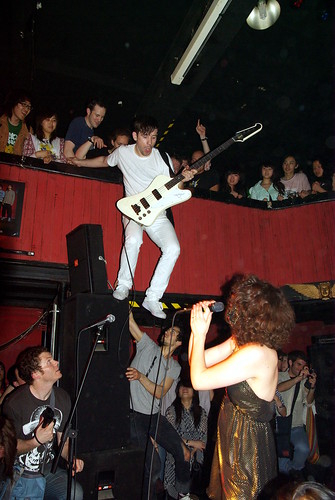
Steven O’Shea of YSP!WSD!
YSPWSD, who played on the previous evening at the Mao Live, a venue located at the heart of Beijing, told me their amazement in front of this overcrowded, ever-changing megalopolis, and the fun they had performing in it. “Crowds are very receptive here! We didn’t have to prompt them to mosh: they took care of it for us!”, said Stephen O’Shea of YSP!WSD! before the show.
The opening show only started after 10:30PM, and the main act only came to stage after midnight. The local bands opening for YSP!WSD! were Candy Monster, Guai Li (see top photo), and Ourselves Beside Me (sic). Judging from the exodus of Chinese spectators from the front of the stage, after Ourselves Beside Me’s performance, we quickly took note that they were probably more well-known to locals.
After some research, I realized that one of its members, bassist Yangfan (see photo), was once a member of Hang On The Box, an all-girl punk band, and one of the most well-known to ever come out of China. Separated since their last album, in Fall 2007, which Yangfan already wasn’t part of, HotB was one of the bands followed in the documentary Beijing Bubbles. The German production also introduced us to other well-known bands of Beijing founded between 1996 and 2001, such as Joyside, New Pants, Sha Zi and T9.

Poster of Beijinger Zuoxiao Zuzhou / 左小祖咒‘s 2001 album (左小祖咒在地安门), Overseas version. Seen at the Sugar Jar, for 100RMB.
The scene’s history cannot be told without mentioning Cui Jian, the one dubbed the godfather of Beijing rock. Cui, whose songs were once chanted by the students of Tian’anmen Square in 1989, fled to the mountains of Yunnan, in the country’s Southwest, slightly after the events of June 4th, like many other rockers at the time. Since then, he has been rehabilitated, and now gives concerts in sold-out stadiums around the world, like in San Jose, California, in early May. Tang Dynasty and Black Panther are other well-known names from this period of the 1990s. Other bands in the meanwhile, like Brain Failure, regularly toured Europe and the USA.
Local bands touring around the world: not too rare (when will they decide to make a stop in Montreal?). Lee Clow, an American expatriate, who lived in Beijing for 8 years, explains that the rule is that if they are popular in the West, generally, they would be in only one country! “Joyside, it’s in Germany, and Brain Failure, good for them, it’s in the US!” Clow has himself been part of a band called End of the World, practically the only ska band in Beijing, because of longevity.
In the last days of my stay in Beijing, we talked about the most important music festival in the country, the Midi Music Festival, named after Beijing’s contemporary music school being reported. Usually held around the May 1st public holiday since 1997, in Haidian park, in the universities district, “Midi” gets between 40,000 and 80,000 spectators each year. But this year, as it was the case in 2003 (because of SARS) and in 2004, police asked the organizers to delay their event until the October 1st national day.

Rockland 摇篮 music store and its owner, Xiao Zhan, in Houhai since 2004.
Before leaving Beijing, I went wild at local music shops. More accessible from the city’s centre, there’s the Rockland, established in 2004 in Houhai, a lake around which were built bars and restaurants for tourists and young rich people.
I bought a number of safe bets, like Joyside’s latest, and also the current new hot property Carsick Cars‘ (they were in Time Magazine’s July 17th, 2008 edition) only album. Both were published by the Maybe Mars label. I also picked up an electro compilation, and an album from a folk rock signer named Wan Xiaoli of independant Modern Sky. You might also this type of good self-made albums circulating at 100 copies.
One of the best-known independent record stores in town is the Sugar Jar, located in the 798 art zone, old military warehouses recycled as an art and design zone.

Jewel case wall at the Sugar Jar.
Aside from selling CDs, tiny Sugar Jar may also be fitted as a performance room. That’s where Joshua Frank, a McGill student who spends the rest of his year in Beijing, and the experimental rock band Hot & Cold that he completes with his brother, occasionally plays. His brother also happens to be in a band with Carsick Cars’ Shouwang, frequently lauded as China’s new guitar icon.
On the electronic music scene, the name that circulated in conversations and promotional posters was Sulumi (real name Sun Dawei), a chiptune musician. Shanshui, the label that he started, just organized an Asian tour with other Chinese and Japanese artists. Among recommendations in this genre, there was an interesting electronic mix of Yi ethnic minority music.

Pleasant to the ear / Lies!
After throwing all these names at you, what can you do to discover more Chinese indie music? The first thing to do is to look at a Chinese site called Neocha (in English: New-Tea), or listen to its Next web radio.

Random graffiti at 798 – the only place in Beijing you will see graffitis!


